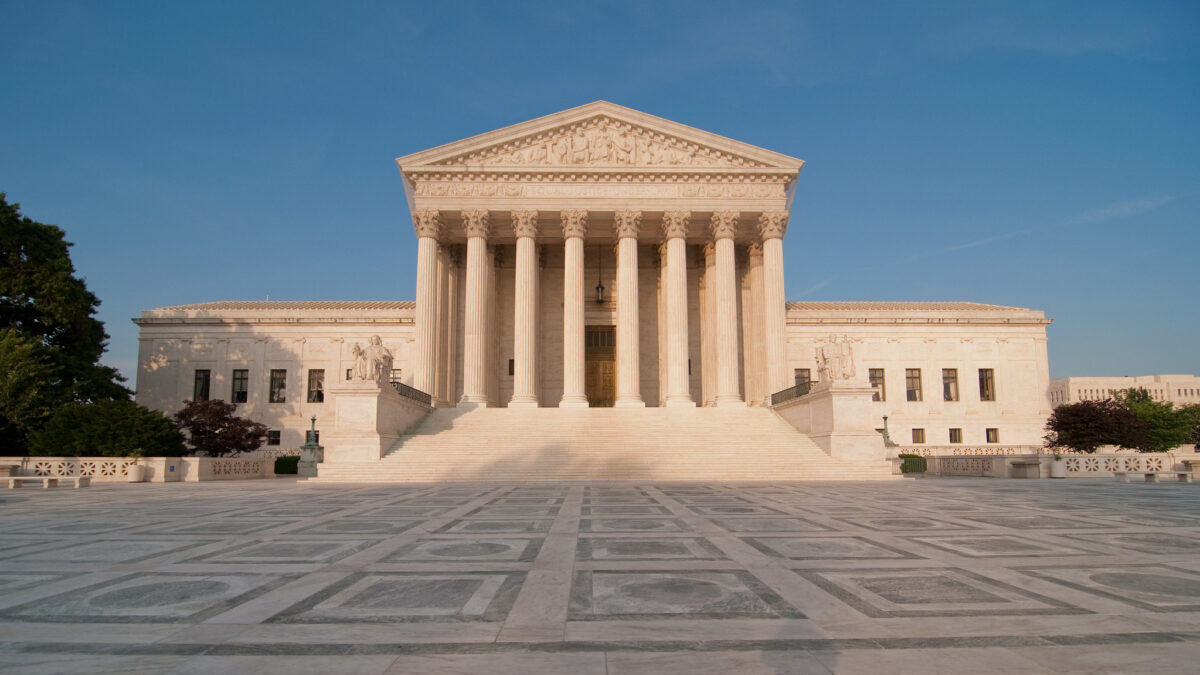Michigan Supreme Court Considers Forcing Judges To Use Preferred Pronouns For Attorneys, Litigants
MichiganThe Supreme Court is looking at a rule change to require judges to refer attorneys and litigants to them by their names. Prefered pronouns.
On January 18, the Michigan Supreme Court sent notice to inform that it was considering amending Rule 1.109 of Michigan Court Rules. This amendment would force courts to adhere to attorneys’ and party’s preferred pronouns both in writing and speech. More than a dozen Michigan lawyers and judges are now concerned about the impact of this rule on free speech and religious freedom.
“Parties and attorneys may … include any personal pronouns in the name section of the caption, and courts are required to use those personal pronouns when referring to or identifying the party or attorney, either verbally or in writing,” The rule is proposed.
Michigan judges and lawyers are writing to court in protest of the proposed amendment. William R. Bloomfield was general counsel to the Diocese of Lansing and responded to the proposal in eight pages.
“In brief, requiring courts, i.e., judges, to use a person’s own designated personal pronouns is an unconstitutional violation of free speech and free exercise of religion,” He added, “And as vital as the interest in free speech is for ordinary citizens, or groups of citizens, it is perhaps even more important for judges to be free of any compulsory speech.”
Timothy Denney, Michigan’s religious liberty attorney, told The Daily Wire “this proposed preferred pronoun rule would violate the compelled speech principle.”
“The Michigan Supreme Court’s proposed rule to force judges to use attorney’s preferred pronouns violates the First Amendment,” Denney said. “The First Amendment prohibits government from compelling public officials to make statements contrary to their beliefs.”
Denney pointed to Meriweather v. HartopThe Sixth Circuit decided that a public college cannot force a professor not to use the preferred pronouns for a trans-identifying student. Michigan’s courts have made these decisions binding.
Twelve Michigan Court of Appeals judges signed a petition opposing the proposed rule changes and pointing out potential legal problems such a ruling would cause. “bad faith actors” The rule can be used for “strategic reasons unrelated to the merits of a case.” Judges also wondered if the ruling could be reversed in light of the small offense of using the wrong pronoun.
Other states, such as New York, Massachusetts, Utah, and Utah, have also been mentioned by the judges. “in narrow, prudent ways.” Massachusetts and Utah have requirements that parties who want to be called by the preferred pronouns of their choice must notify the court through a “Notice of Pronouns.”
The rule change proposed is yet another example of Great Lakes State’s highest court catering for the LGBTQ community’s demands, even though those demands are in direct conflict with the Constitution’s protections of free speech and religious freedom. Last summer, the court ruled A 5-2 decision ruled that the civil rights protections of the state against discrimination based on sex are also applicable to sexual orientation and gender identification, which is a target for small businesses in the state not yet subject to federal workplace laws.
The Michigan Supreme Court is Receive comments Information about the proposed amendment to Rule 1.109 through Mai 1.
“From Michigan Supreme Court Looks at Forcing Judges to Use Preferred Pronouns for Attorneys and Litigants“
“The views and opinions expressed here are solely those of the author of the article and not necessarily shared or endorsed by Conservative News Daily”
" Conservative News Daily does not always share or support the views and opinions expressed here; they are just those of the writer."





Now loading...